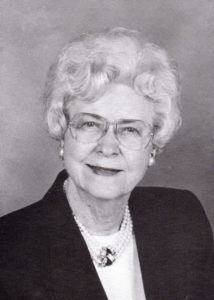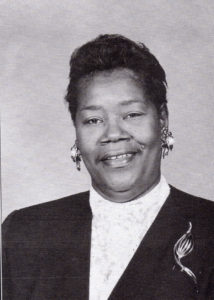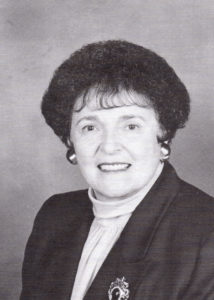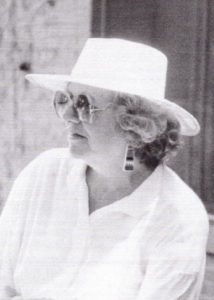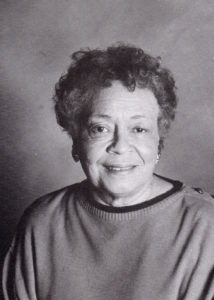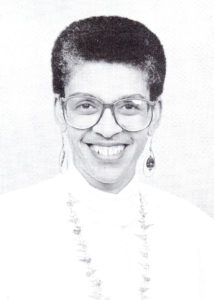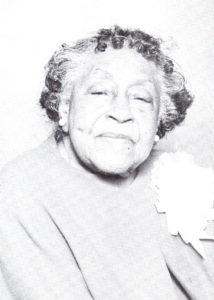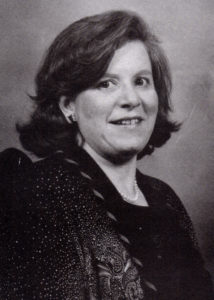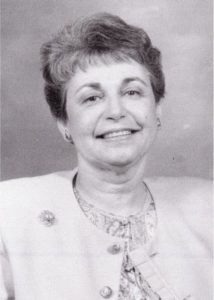Women of Achievement
1986
HERITAGE
for a woman whose achievements still enrich our lives:
Yellow Fever Heroines and Martyrs
Memphis was just a half-century old when it faced the most devastating crisis of its history — the decade of death and desolation brought on by the yellow fever epidemics of the 1870s.
The deadly disease was no stranger to our city. In several previous epidemics many hundreds of Memphians had suffered yellow fever’s chills, fevers, merciless pain and agonizing death. But no one was prepared for the unprecedented horror of the outbreaks that visited Memphis in 1873, 1878 and 1879. When it was all over, the combined casualties of these epidemics in a city of 50,000 residents totaled some 24,000 cases of the disease and 7,745 deaths.
The cause and care of this mosquito-transmitted disease were then unknown. With each new outbreak, thousands fled the stricken city, many never to return. Other thousands stayed, may to suffer and die.
Our heritage award honors all the women who responded so gallantly in Memphis’ time of disaster. They were women of various races and creeds, women from all stations of life, who worked tirelessly, visiting homes, distributing medicine and food, nursing the sick, caring for the orphaned, comforting the dying. The names of most of these women have been lost with time, but we are fortunate to know of the deeds of some individuals, and to have a record of the work of women of the Roman Catholic and Episcopal religious orders. We will be naming these women for you, for their names and their actions symbolize the achievements of all of those we honor.
The epidemic of 1873 began in early August when two men infected with yellow fever were put ashore in Memphis from a northbound steamer. Within days the disease was rampant in the city. Among the first women who gave their lives fighting the fever were these, who died that August:
Sister Gabriel
Sister Bonaventure
Sister Mary of Nazareth
By September 25,000 people had fled Memphis by boat, train or wagon. And we know that September was the month that Sister Gertrude died.
In October, at the epidemic’s peak, at least 50 to 60 people were dying each day, and the total of dead had reached 2,000 by the month’s end. We know some details about two of those deaths.
Emily Sutton, a 27-year-old prostitute who practiced her profession under the name of Fannie Walker, had abandoned “the trade” but remained in the city to nurse victims of the dread disease. She fell victim herself on October 4, 1873.
At the other end of the social scale was Mattie Stephenson, a college student who came from Illinois on October 5 to join her classmate, Lula Wilkinson of Memphis, as a volunteer nurse at the Walthall Infirmary. On October 18 Mattie died of the fever. On the marker of her grave at Elmwood Cemetery are the words, “She died for us.”
Here are the names of three other caregivers who died in October of 1873:
Sister Mary Joseph McKernan
Sister Martha Quarry
Sister M. Magdalen McKernan
The 1878 epidemic was the most frightful one. Some 30,000 people, recalling the 1873 outbreak, fled Memphis in terror within four days after the first death was reported in mid-August. The first death of someone caring for the ill recorded in 1878 was that of Sister Veronica Gloss, in August.
By September the city was, in the words of one eyewitness, “a waste of death, destitution and destruction.” Amid sweltering heat and scenes of indescribable horror, people died in such numbers that corpses had to be buried in shallow trenches. Visiting the homes of the stricken, relief workers would find only silence where whole families lay dead.
One marker in Elmwood reminds us of one of the best-remembered heroines of the 1878 epidemic. It is inscribed, “Annie Cook. Born 1840. A Nineteenth Century Mary Magdalene who gave her life to save the lives of others.
Annie was the Madam of Mansion House on Gayoso Street, famous as “the wickedest spot between St. Louis and New Orleans.” In August, as soon as the fever invaded Memphis, she had closed down her establishment and turned its gilded and mirrored rooms into a hospital for the sick and dying. Nursing them, Annie Cook soon was herself struck down by the disease. She died on September 11, 1878.
Here are the names of others who died in September of that year while ministering to the victims of yellow fever:
Sister Constance
Sister Thecia
Sister Ruth
Sister M. Dolores Gloss
Sister Alphonse Yakel
Sister Vincentia
Sister Stanislaus
Sister Wilhelmina
The frosts came at last, in late October, and killed the mosquitoes. By then, an estimated 17,000 of the 20,000 Memphians who had remained in the city had contracted yellow fever. Of those, 5,150 were dead.
Here are names of some who died in October 1878:
Sister Frances
Sister Mary Laurentia Yakel
Sister Mary of St Joseph
A depopulated, bankrupt Memphis was in such dire straits that the city surrendered its charter to the state in January of 1879. But the ordeal was still not over. That summer another epidemic killed 595 of the city’s remaining citizens. And once more the women responded.
These are the names of some of the nursing women who died in 1879:
Sister M. Dominica Fitzpatrick
Sister M. Bernadine Dalton
Sister M. Joseph McGary
Tonight, as we honor the martyred dead, we also honor the dedication of those who survived. We can name only a few of these heroines. We know that Mattie Stephenson’s college classmate, Lula Wilkinson, recovered from the fever. And we know that among the religious women stricken with the disease, the following also survived to continue their good works:
Sister Hughetta Snowden
Sister Clare
Sister Helen
But what of the thousands of brave women whose names we shall never know? We especially wish to honor them. We do know, for instance, that a large proportion of the 3,000 women who served as nurses in the catastrophic 1878 outbreak of the fever were black women. We do not know their names. But it is fitting that we remember them as women of achievement, for we know that they, like all heroines and martyrs of the fevers — the named and the nameless, individually and together — demonstrate all the qualities our Women of Achievement awards recognize and value:
They were women who had the courage to choose the harder path.
Their initiative allowed them to function effectively amidst chaos and despair.
Their determination made them keep striving for solutions to overwhelming problems, and their vision allowed them to see a better future worth striving for.
Their steadfastness caused them to return again and again to a task that offered little beyond the satisfaction of meeting a great need.
And their heroism led them to risk everything, even life itself, for a worthy cause.
They have left us a heritage of unsurpassed valor. It is a heritage to cherish.


